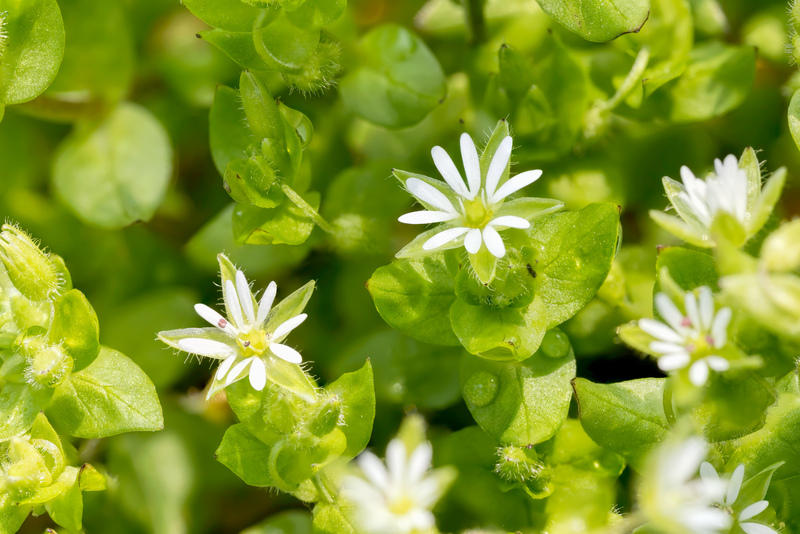Organic Waste: A Nutrient Boost for the Soil
Posted on 30/05/2025
Organic Waste: A Nutrient Boost for the Soil
Organic waste is often viewed as a problem to be managed or disposed of, but in reality, it holds the key to healthier soils and more sustainable agriculture. When effectively managed, organic waste offers a powerful, natural nutrient boost for the soil, supporting plant growth, improving soil structure, and promoting overall ecosystem health. In this comprehensive article, we will explore the significance of organic waste in enriching soils, discuss various types of organic matter, and provide practical guidance for harnessing the full potential of organic residues in your garden, farm, or landscape.

Understanding Organic Waste: What Is It?
Before diving into the soil benefits, it's crucial to understand what organic waste actually is. Generally speaking, organic waste includes any material that comes from a living organism and can decompose naturally. This broad category encompasses everything from kitchen scraps and yard clippings to manure and agricultural residues. Common examples of organic materials include:
- Food waste: Leftover fruits, vegetables, coffee grounds, eggshells, and grains
- Yard waste: Grass clippings, leaves, twigs, and wood chips
- Animal manure: Droppings from cows, chickens, horses, and other livestock
- Crop residues: Stalks, husks, and chaff left after harvest
- Paper products: Unbleached paper towels, cardboard, and newsprint
Distinguishing Organic vs. Inorganic Waste
Organic waste is distinct from inorganic waste, such as plastics, metals, and synthetic chemicals. While inorganic materials persist in the environment for decades or longer, organic matter breaks down through biological processes, returning valuable nutrients to the earth.
How Organic Waste Enriches the Soil
The process by which organic residues become beneficial to the soil is known as decomposition. When organic waste is added to soil--or to a compost pile--microorganisms, fungi, and invertebrates break down the material. Through this process, complex organic compounds are transformed into simpler forms, such as nitrogen (N), phosphorus (P), potassium (K), and numerous micronutrients that plants need to thrive.
Key Benefits of Adding Organic Matter to Soil
- Improved Soil Fertility: Decomposed organic matter, also called humus, acts as a slow-release fertilizer, supplying essential nutrients for months or years.
- Enhanced Soil Structure: Organic matter helps soil particles clump together, improving aeration, drainage, and root penetration.
- Water Retention: Soils rich in organic waste can hold more moisture, reducing the need for frequent watering and making them more resilient during droughts.
- Increased Biological Diversity: Decomposing organic residues support a diverse ecosystem of microbes, worms, and insects, all of which contribute to soil health and structure.
- Reduced Erosion: Healthy, organic-rich soils are less likely to be washed away by heavy rainfall, protecting valuable topsoil and reducing sediment pollution downstream.
Various Forms of Organic Waste Used in Agriculture and Gardening
There are many different types of organic matter used to enrich soils. Some of the most popular include:
- Compost: The result of controlled aerobic decomposition of organic materials; compost is prized for its nutrient content, texture improvement, and ability to suppress plant diseases.
- Animal Manure: Fresh or composted manure is an excellent natural fertilizer, but must be handled carefully to avoid introducing pathogens or excessive salts.
- Green Manure: Certain crops (like clover or vetch) are grown specifically to be tilled under the soil, adding both organic matter and valuable nitrogen.
- Mulch: Layers of straw, leaves, grass clippings, or wood chips placed on the soil surface help to conserve moisture, regulate temperature, and eventually break down to feed the soil below.
- Crop Residues: Rather than removing post-harvest stalks, husks, and roots from the field, incorporating them into the soil recycles nutrients and maintains organic content.
Composting: Transforming Waste into Black Gold
The most common and effective way to convert organic waste into a soil nutrient boost is by composting. Composting involves managing the decomposition process by balancing "browns" (carbon-rich materials like leaves and straw) with "greens" (nitrogen-rich materials like food scraps and grass clippings), providing adequate aeration and moisture. After several months, the result is rich, dark compost that can be added to gardens and landscapes for natural soil fertility.
Soil Health: The Foundation for Productive Agriculture
The long-term fertility and productivity of any agricultural or natural landscape depends on the health of its soil. Healthy soils:
- Contain ample organic matter
- Host a thriving community of soil organisms
- Hold nutrients and make them available to plants
- Efficiently cycle water
- Resist disease and degradation
Regular addition of organic waste plays a central role in maintaining and improving all these soil characteristics. In contrast, repeated removal of biomass (such as clearing away plant debris or burning crop residues) depletes soil organic matter and reduces long-term fertility.
Organic Waste: Key Nutrients Released
When managed correctly, organic residues supply major and minor nutrients essential for plant growth:
- Nitrogen - necessary for green growth and protein synthesis
- Phosphorus - required for root development, seed production, and energy transfer
- Potassium - supports water regulation, enzyme activation, and disease resistance
- Micronutrients - such as calcium, magnesium, boron, and iron, which are vital in small quantities for many plant functions
The nutrients from compost, manure, or crop residues are released over time, providing a steady, slow-release fertilizer effect that is more stable and sustainable than many chemical fertilizers.
Economic and Environmental Benefits of Recycling Organic Waste
Using organic waste as a soil amendment isn't just agriculturally sound--it is also a smart environmental and economic strategy.
Reducing Landfill Waste
Organic matter makes up a significant portion of global landfill contents. When organic waste is diverted from landfill and returned to the soil, we reduce landfill use, decrease methane emissions (a potent greenhouse gas), and improve urban and rural waste management.
Conserving Resources and Saving Money
By recycling household or farm waste into compost or mulch, growers can reduce reliance on synthetic fertilizers and water, lowering costs and conserving resources. These organic soil amendments are often available for free or at low cost, making them accessible for home gardens to large farm operations alike.
Improving Local Food Systems
Communities that encourage composting and organic waste recycling help create closed-loop food systems, where nutrients are returned to local soils and support new food production. This builds resilience and sustainability into the food system.
Best Practices for Applying Organic Waste to Soil
If you're new to using organic matter for soil improvement, follow these tips to maximize benefits and avoid common pitfalls:
Composting at Home
- Maintain the right balance of greens (food scraps, fresh grass) and browns (leaves, shredded cardboard).
- Aim for moisture consistency--compost should be as damp as a wrung-out sponge.
- Turn the compost regularly to provide oxygen and speed up decomposition.
- Let the pile mature for at least 4-6 months, ensuring any pathogens are destroyed by heat.
- Avoid adding meat, dairy, or oily foods, which can attract pests and slow down the process.
Applying Animal Manure
- Compost manure before use to reduce pathogens and weed seeds.
- Avoid fresh manure near edible crops, as it may contain harmful bacteria.
- Apply in the fall or several months before planting.
Using Mulch and Crop Residues
- Chop or shred large materials for even decomposition.
- Spread mulch 2-4 inches thick, keeping it away from plant stems to prevent rot.
- Incorporate crop residues into the soil after harvest to ensure even decomposition and nutrient cycling.
Avoiding Over-application
Excessive addition of organic materials, especially high-nitrogen ones, can overwhelm the soil and lead to nutrient imbalances or pollution. Apply reasonable quantities and rotate different types of organic inputs as needed.
Common Myths and Misconceptions about Organic Waste in Soil
Despite the scientifically proven benefits of organic waste as a soil amendment, some misconceptions persist:
- Myth: "Compost and manure always smell bad."
Fact: Properly managed organic waste (with enough oxygen) will not produce foul odors. - Myth: "All organic materials are safe to use on food crops."
Fact: Certain manures (especially from omnivores) and some food waste should be composted first to kill pathogens. - Myth: "Organic matter can replace all fertilizers."
Fact: While organic matter is crucial, some soils require targeted nutrient additions for optimal balance.

The Future of Organic Waste Recycling in Agriculture
As concerns over sustainability and climate change grow, organic waste recycling is gaining prominence worldwide. Innovative technologies--from large-scale composting facilities to bio-digesters and vermiculture (worm composting)--are enabling communities to manage organic matter at a larger scale. In agriculture, regenerative practices that prioritize soil health and organic matter cycling are at the forefront of creating resilient food systems.
Policy and Community Initiatives
Many municipalities and governments now mandate organic waste separation and collection, distributing finished compost to parks, farms, and schools. Farmers' markets and community gardens may run their own composting programs, keeping local nutrients in circulation and building awareness about the value of organic waste in soil enrichment.
Conclusion: Turning Waste into Wealth for Healthy Soil
In summary, organic waste is not a burden to be disposed of, but a valuable resource that--when managed intelligently--powers plant growth, improves soil quality, and protects the environment. By closing the loop between our kitchens, gardens, and fields, we transform what was once waste into a potent nutrient boost for the soil and future harvests. Whether you are a backyard gardener, a commercial farmer, or a concerned citizen, integrating more organic matter into your soil is a simple yet profound step toward a more sustainable and food-secure future.
Start today--begin composting, mulching, or recycling your household's organic waste, and watch your soil--and your crops--flourish.
Frequently Asked Questions (FAQ)
-
Q: What are the best types of organic waste to use in my vegetable garden?
A: Vegetable scraps, coffee grounds, crushed eggshells, grass clippings, and shredded leaves are excellent for home composting and soil enrichment. -
Q: How long does it take for organic waste to become usable compost?
A: Depending on conditions, composting typically takes 4-12 months. Turning the pile more often and maintaining the right moisture and material balance will speed up the process. -
Q: Can organic waste be used in all types of soil?
A: Yes! All soils benefit from increased organic matter, but the amount and type should be suited to your specific soil and crops.
Enrich your soil, nourish your crops, and care for the planet--by making the most of your organic waste each day.
Latest Posts
Creating a Garden Wonderland for Little Ones
The Transformative Magic of Container Gardening
Unleash Your Gardening Talent: 9 Tips for Starters
Discover the Beauty of 9 Ground Cover Plants in Your UK Garden

